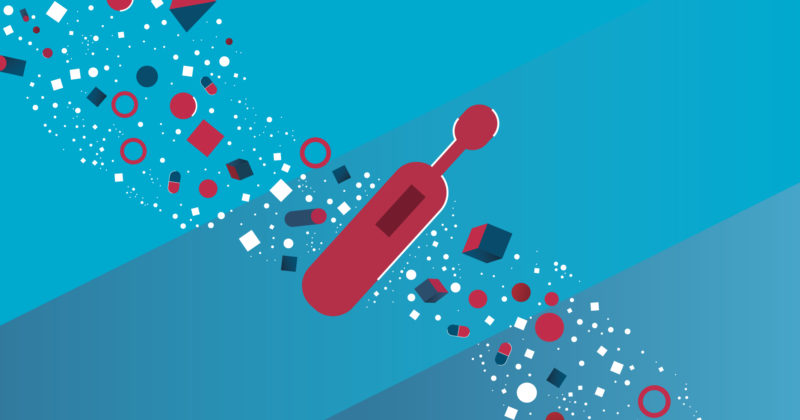The number of countries with self-testing policies in place has increased by nearly 15-fold since 2015, with an estimated 192 million self-tests needed to cover low- and middle-income countries by 2025.
Geneva – Disruptions and delays to HIV services caused by the COVID-19 pandemic led to declines in HIV testing and diagnoses in 2020 for the first time in more than two decades. HIV self-testing, which has contributed to a 40% reduction in the number of people who do not know their HIV status since 2015, is now crucial to maintaining access to HIV care for millions of people in the face of new COVID-19 roadblocks.
With more than 37 million people living with HIV worldwide – an estimated 6.1 million of whom do not know their status – receiving a diagnosis is a vital first step in accessing treatment.
Unitaid has led a large-scale effort to create access to HIV treatment and prevention through self-testing, with more than US$100 million invested since 2015. This work has helped reduce prices for self-tests, generate demand, demonstrate implementation pathways, and support scale up across 14 countries in Africa[1], with more recent work in India and Indonesia looking to further expand successful self-testing strategies to more people.
Data collected jointly by Unitaid and the World Health Organization show that between 2015 and 2020, the number of countries with self-testing policies has grown from six to 88 – and an additional 31 countries have policies in development. Eastern and Southern Africa, the epicentre of the HIV epidemic, are now leading the way with 52% of all countries implementing HIV self-testing – more than any other region. In contrast, significant gaps remain in Asia and Latin America, where just 10% and 6% of countries are implementing HIV self-testing respectively.
HIV self-testing has helped reach populations including men and young people who are less likely to access health centres and had significantly lower testing rates. In the largest evaluation of self-testing to date, Unitaid’s flagship STAR Initiative, led by Population Services International (PSI), found that, in Malawi, Zambia and Zimbabwe, close to half of all self-testers were men and more than one-third were people between the ages of 16 and 24.
Key populations who may hesitate to visit health centres due to stigma or discrimination, including men who have sex with men, transgender individuals, and sex workers, have also benefitted from self-testing. In West Africa[2], the Unitaid-funded ATLAS project targeted these groups by making self-tests available in places they frequent, such as nightclubs, hotels, or via personal contacts, with more than 40% of all people reached getting tested for the first time.
While procurement of HIV self-tests is rising, it is greatly outpaced by the need. By 2025, the number of self-tests procured is projected to fill just 15% of the estimated 192 million tests needed in low- and middle-income countries. And although the funding allocated for self-testing has increased significantly over the past several years, an additional US$104 million is needed to cover the costs of the 29 million self-tests expected to be procured.
Ahead of World AIDS Day, 1 December, Unitaid is calling for urgent funding and scale-up of HIV self-testing to protect progress threatened by COVID-19 and secure pathways to HIV treatment and prevention services for millions of people worldwide.
Disruptions and delays to HIV services caused by the #COVID19 pandemic led to declines in HIV testing and diagnoses in 2020 for the first time in more than two decades.
Read @UNITAID‘s statement for #WorldAIDSDay to find out more: https://t.co/COtIyXJVYI
— Unitaid (@UNITAID) December 1, 2021
[1] Unitaid funding has supported 14 countries in Africa with HIV self-testing; 11 through the STAR Project (Malawi, Zambia, Zimbabwe, eSwatini, Lesotho, South Africa, Cameroon, Mozambique, Nigeria, Tanzania and Uganda) and 3 countries through the ATLAS Project (Senegal, Mali, Cote d’Ivoire).
[2] Senegal, Mali, and Côte d’Ivoire
Media contact
For more information and media requests:
Maggie Zander
Communications officer
Mobile: +41 79 593 17 74
Email: zanderm@unitaid.who.int
View All News
